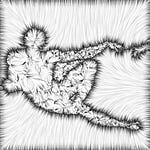Kathleen Lowrey is a professor of anthropology at the University of Alberta, where she researches gender and shamanism. We came into contact here while discussing the primordial matriarchy on the Notes app on Substack. (Come join! It’s like a Viennese café circa 1900.) Despite popular academic opinion, we both believe there is good evidence for the greater female political power in prehistory. I asked her to come on the show, which unfortunately had to be delayed due to a political hullabaloo interesting enough to be covered by the New York Times.
Kathleen had tried to organize a panel discussion titled “Let’s Talk About Sex Baby: Why Biological Sex Remains a Necessary Analytic Category in Anthropology.” This was approved months before being removed from the conference. In a joint statement, the two sponsors of the conference, the American Anthropological Association, and the Canadian Anthropology Society, said that they wanted to protect the transgender community:
“The session was rejected because it relied on assumptions that run contrary to the settled science in our discipline, framed in ways that do harm to vulnerable members of our community.”
…
“The function of the ‘gender critical’ scholarship advocated in this session, like the function of the ‘race science’ of the late 19th and early 20th centuries, is to advance a ‘scientific’ reason to question the humanity of already marginalized groups of people,”
The Heterodox Academy ended up hosting the discussion, which you can view here. But not before watching my interview, where we discuss EToC, MKUltra’s involvement in South American shamanism, and how anthropology has treated the myth of the primordial matriarchy in the past 150 years.
ChatGPT summary:
Introduction of Dr. Kathleen Lowrey: An anthropologist at the University of Alberta, Lowrey's work initially focused on shamanism and ethnobotany in South America. She expressed skepticism about the widespread belief in South American shamanic ethno-pharmaceutical knowledge and hinted at possible connections with MKUltra and CIA.
Primordial Matriarchy Concept: Lowrey challenges the mainstream feminist anthropology view by discussing the significant role of women in early human societies. She references Johann Jakob Bachofen's work on mother right and mentions the presence of extensive female iconography in ancient cultures, arguing against the notion that Bachofen's ideas were purely ideological.
Cultural Diffusion and Archaeology: The discussion highlights the reluctance in modern anthropology to embrace diffusionism due to concerns over perceived racism or oversimplification. Lowrey points to recent ancient DNA evidence supporting some aspects of old-fashioned diffusionism.
Gender Ideology in Anthropology: Lowrey criticizes certain modern approaches within anthropology that deny biological realities of sex and reproduction. She emphasizes the importance of understanding human biology to comprehend social dynamics related to sex and gender.
Encouragement for Outside-the-Box Thinking in Anthropology: Lowrey encourages the exploration of unconventional narratives in anthropology, emphasizing the importance of being wrong in interesting ways to advance scientific understanding.
Anthropology's Stance on Gender and Sex: The conversation critiques the denial of biological sex differences in current anthropological discourse and its implications for understanding human social relations and power dynamics.
Role of Feminist Anthropologists: Lowrey discusses the role of certain feminist anthropologists in pushing gender ideology, sometimes at the expense of ignoring fundamental biological facts and social power dynamics.
Impact of Ideology on Anthropological Inquiry: Lowrey highlights how current ideological stances in anthropology have stifled inquiry into significant questions about human history, particularly regarding gender and sex.
Final Thoughts: Lowrey concludes by encouraging continued exploration and questioning of anthropological theories, even those that go against academic orthodoxy, to keep the discipline dynamic and evolving.











